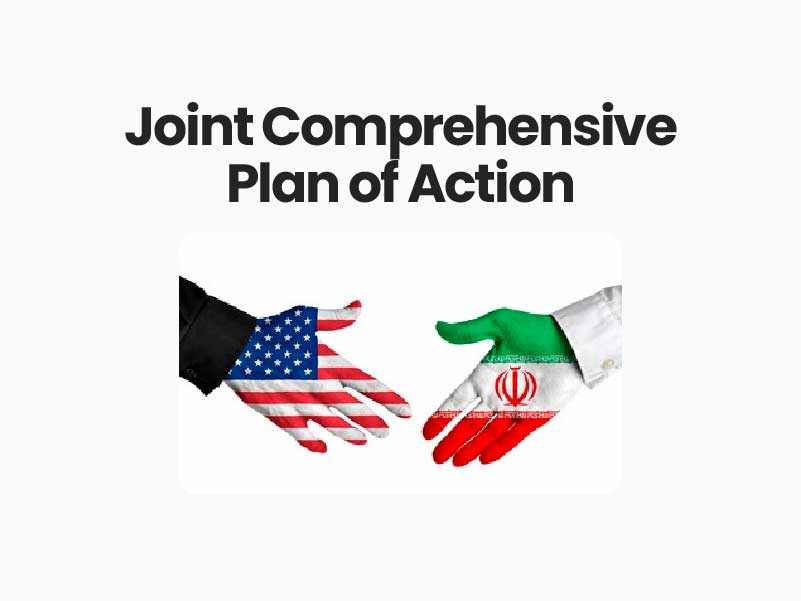Companion@360 → 7 Month programme to sharpen your writing skills → REGISTER NOW

Joint Comprehensive Plan of Action ( JCPOA )
JCPOA is an agreement signed by Iran and the P5+1+1 (China, France, Germany, Russia, the United Kingdom, the United States and EU) on July 14, 2015.
Significance:
- This nuclear deal or JCPOA seeks to prevent Iran from producing a nuclear weapon — something Iran insists it does not want to do — by putting curbs on its atomic programme in exchange for economic incentives.
- As per the deal, Iran reduced the number of its centrifuges used for enriching uranium by two-thirds, restricted its uranium enrichment to 3.67%, and removed the core of its heavy water facility in Arak.
- The nuclear deal was endorsed by UN Security Council Resolution 2231, adopted on July 20, 2015.
- Iran’s compliance with the nuclear-related provisions of the JCPOA is verified by the International Atomic Energy Agency (IAEA) according to certain requirements set forth in the agreement.
- Following the issuance of an IAEA report verifying implementation by Iran of the nuclear-related measures, the UN sanctions against Iran and some EU sanctions will terminate and some will be suspended.
- 15-year term: After the 15 years, the treaty will come to its term; then the extraordinary restrictions will no longer be applicable
- This is the first time that the United Nations Security Council has recognized the nuclear enrichment program of a developing country and backs an agreement signed by several countries within the framework of a resolution (United Nations Security Council Resolution 2231)
Joint Comprehensive Plan of Action – Challenges:
- Iran can make things difficult for the U.S. in Afghanistan as also in Iraq and Syria.
- The U.S.’s ability to work with Russia in Syria or with China regarding North Korea will also be impacted.
- And sooner or later, questions may be asked in Iran about why it should continue with other restrictions and inspections that it accepted under the JCPOA, which would have far-reaching implications for the global nuclear architecture.
- Coming after the rejection of the Trans-Pacific Partnership (TPP), the Paris climate change accord and the North American Free Trade Agreement, President’s decision further diminishes U.S. credibility.
- The JCPOA limited Iran to enrich uranium only up to a 3.67% concentration and its stockpile to 300 kg of UF6 (corresponding to 202.8 kg of U-235), and further capped its centrifuges to no more than 5,060, besides a complete cessation of enrichment at the underground Fordow facility.
- It also limited Iran’s heavy water stockpile to 130 tonnes.
- The IAEA report raised the need for additional budgetary contributions from IAEA member states to meet the cost of implementing the JCPOA. IAEA monitoring activities in Iran are projected to cost 9.2 million euros ($10.4 million) in 2019, of which 4 million euros ($4.5 million) is extrabudgetary. The report noted that the agency has 3.1 million euros ($3.5 million) in extrabudgetary contributions available to meet the costs of JCPOA-related activities for 2019.
- India has managed to walk the diplomatic tightrope between the US and Iran.
